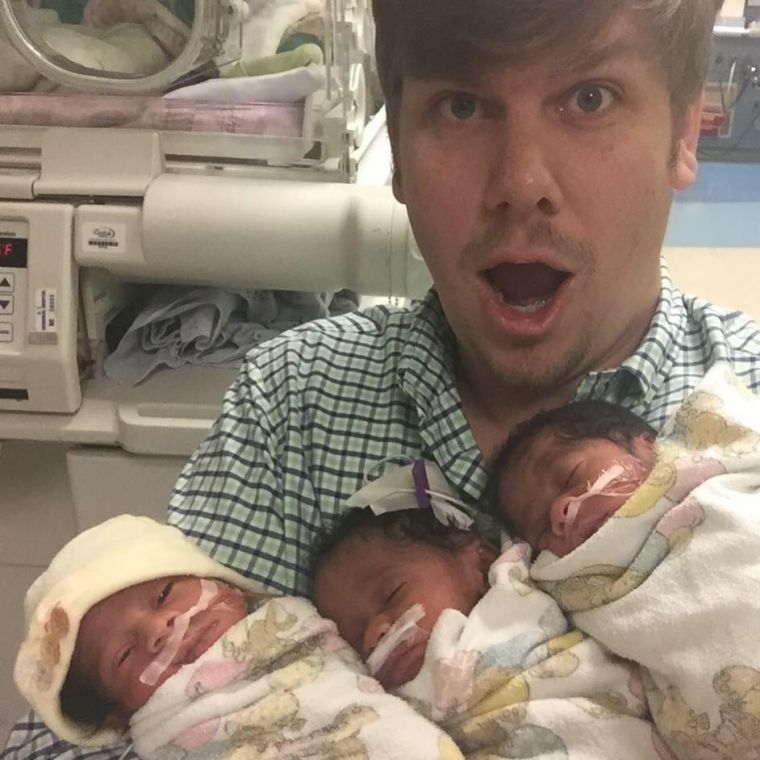Embryo adoption: 21st Century Christian compassion in action
A white Christian missionary couple in America have made headlines this week by giving birth to three black babies - the result of 'embryo adoption'.

Aaron and Rachel Halbert see adoption as "the logical outcome" of their pro-life position, and had already adopted two other children.
"We were both deeply convicted that one of the ways to be pro-life is to involve ourselves in adoption," said Aaron, writing in the Washington Post.
This conviction to adopt did not stop there. After hearing about the National Embryo Donation Center, a Christian embryo bank, the young missionary couple were moved to explore the possibility of embryo adoption.
The NEDC facilitates the adoption of embryos that have been created during the process of IVF, but not been used, left frozen and stored for later use. These embryos, if not used by the biological family, are often donated for research, frozen indefinitely or thawed, letting them die.
The NEDC offers an alternative, through donation to a couple who is unable to conceive.
"If Christians – or others – really believe life begins at conception, it follows that we should respond by being willing to support embryo adoption and even take part in it ourselves," wrote Aaron.
Embryo adoption might be a new idea, but it is also the most natural response to a pro-life position.
If we are willing to hold that embryos are human life, then we must be willing to care for that human life. And that means being willing to get involved, personally.
So often pro-lifers pit – or are portrayed as pitting – the value of the mother against that of the embryo, leaving one human life in competition with the other.
This is not a Christian response.
As Christians we are called to community, which knows human life to be created, reconciled and redeemed in Jesus Christ, and which protects its most vulnerable members. In the case of an unwanted pregnancy, the mother and the embryo both fall into that category.
True religion, according to scripture, is to look after widows and orphans. Many women faced with unwanted pregnancies are left alone, a modern day widow, and the unwanted embryo sitting in the donation centre, the modern day orphan.
We are called to care for both the widow and the orphan.
If a church community is willing to say that it is pro-life, and thus anti-abortion, it must be willing to be a community that accepts and embraces orphans. In our modern day that may also look like orphaned embryos.
Christians hold that life is a gift from God, and that includes our own. And as believers, in baptism we actively choose to die and allow Christ to live in us. This means that, as believers, our lives are going to look a little different to the post-enlightenment 21st Century norm.
In the knowledge that our life is not our own, but God's who created and redeemed us, we – as a Christian community – are called to support both mothers and unborn children.
If we are going to urge women not to have abortions, we must create an environment in which it is bearable for that woman to exist as a mother, or we must be willing to adopt her yet-to-be-born child.
We must be available to support the woman through that pregnancy, realising that she is not an individual acting independent of her circumstances, but a child of God who exists within a societal situation which leaves abortion as apparently the most viable option. This means being aware of their monetary, psychological, emotional and spiritual needs.
It is the responsibility of the church, if she is to adopt a position that does not support abortion, to be a church that truly supports the women and foetuses involved.
Just as we are called to adopt and care for orphans, in a 21st century context, it is natural that we are, too, called to adopt orphaned embryos.
As theologian Stanley Hauerwas said, "If we close our doors on the faces of women and children, then we close our doors on the face of Christ."











